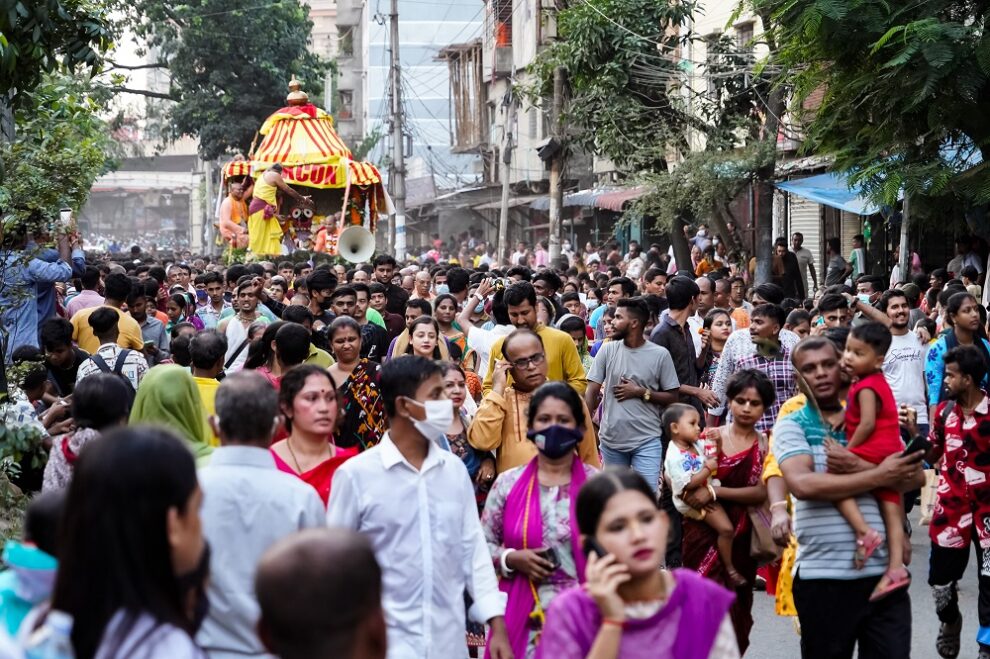Welcome to the fascinating world of Pushtimarg, where devotion and spiritual growth are nurtured by the influential presence of the Swamini. Pushtimarg is a path of devotion and love towards Lord Krishna, and the Swamini plays a pivotal role in guiding and inspiring devotees on this sacred journey. With her profound wisdom and unwavering commitment, the Swamini serves as a spiritual mentor, offering insights into the scriptures, leading bhajan sessions, and facilitating profound connections with the divine. In this article, we will delve into the significance of the Swamini in Pushtimarg, exploring how her guidance and teachings become the catalyst for personal transformation and spiritual enlightenment. Get ready to embark on a captivating exploration of the role of the Swamini in nurturing devotion and spiritual growth within the realm of Pushtimarg.
Understanding the role of Swamini in Pushtimarg
In Pushtimarg, the Swamini is not merely a religious figure or a spiritual guide; she is an embodiment of devotion and love for Lord Krishna. The Swamini is considered to be a direct link between the devotee and the divine, guiding them on their journey of bhakti (devotion). Her role goes beyond imparting knowledge; she serves as a living example of unwavering faith and devotion, inspiring others to follow the path of Pushtimarg. Through her teachings, the Swamini instills the essence of seva (selfless service), surrender, and unconditional love for Lord Krishna.
The Swamini’s primary responsibility is to nurture the devotee’s spiritual growth by providing guidance, answering questions, and resolving doubts. She helps the devotee understand the profound teachings of Pushtimarg, including the principles of pushti (divine grace) and prasada (divine mercy). The Swamini’s wisdom and knowledge of the scriptures enable her to interpret and convey complex spiritual concepts in a relatable manner, making them accessible to all.
The Swamini also plays a crucial role in upholding the traditions and rituals of Pushtimarg. She ensures that the devotees adhere to the prescribed code of conduct and rituals during various ceremonies and festivities. The Swamini’s presence during these occasions reinforces the importance of maintaining a deep connection with Lord Krishna and embracing the traditions passed down through generations.
The importance of Swamini in nurturing devotion
Devotion is the cornerstone of Pushtimarg, and the Swamini’s role in nurturing and deepening this devotion cannot be overstated. Through her teachings, the Swamini instills a sense of reverence and love for Lord Krishna, encouraging devotees to develop a personal relationship with the divine. She guides them on the path of bhakti, teaching them the importance of surrendering oneself completely to the will of Lord Krishna.
The Swamini’s presence during bhajan sessions is particularly significant. Bhajans are devotional songs that express love and adoration for Lord Krishna. The Swamini leads these sessions, creating an atmosphere of spiritual bliss and unity among the devotees. Her melodious singing and heartfelt devotion inspire others to immerse themselves in the divine, fostering a deep sense of connection and love for Lord Krishna.
Furthermore, the Swamini’s teachings emphasize the significance of seva (selfless service) in nurturing devotion. She encourages devotees to engage in acts of service, not only towards Lord Krishna but also towards fellow devotees and the community at large. Through seva, the Swamini teaches that devotion is not merely a personal experience but also a means to uplift and serve others, thereby strengthening the bonds of love and unity within the Pushtimarg community.
Swamini’s role in fostering spiritual growth
Spiritual growth is a lifelong journey, and the Swamini plays a vital role in guiding devotees along this path. She provides the necessary tools, knowledge, and support to help individuals deepen their understanding of Pushtimarg and evolve spiritually. Through her guidance, the Swamini helps devotees overcome obstacles, resolve inner conflicts, and develop a deeper connection with Lord Krishna.
The Swamini’s teachings encompass various aspects of spiritual growth, including self-reflection, self-discipline, and self-transformation. She encourages devotees to introspect and identify their strengths and weaknesses, guiding them towards self-improvement and inner growth. The Swamini’s teachings inspire individuals to cultivate virtues such as humility, compassion, and gratitude, which are essential for spiritual progress.
Additionally, the Swamini facilitates profound connections with the divine through various rituals and practices. She guides devotees in performing seva, attending satsangs (spiritual discourses), and engaging in meditation and prayer. These practices enable individuals to experience moments of transcendence and spiritual awakening, leading to personal transformation and a deeper understanding of their purpose in life.
Conclusion: The enduring legacy of Swaminis in Pushtimarg
In conclusion, the Swamini’s role in Pushtimarg is of immense significance. She serves as a guiding light, nurturing devotion and spiritual growth within the hearts of devotees. Through her teachings, the Swamini instills reverence, love, and surrender towards Lord Krishna, inspiring individuals to embark on a transformative journey of bhakti.












